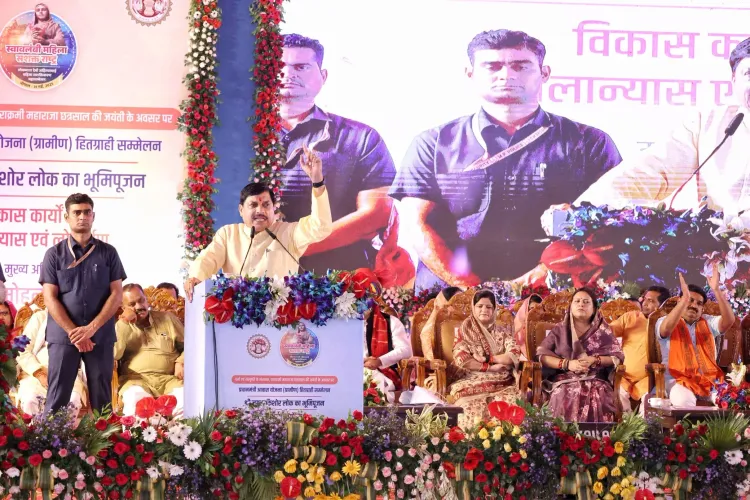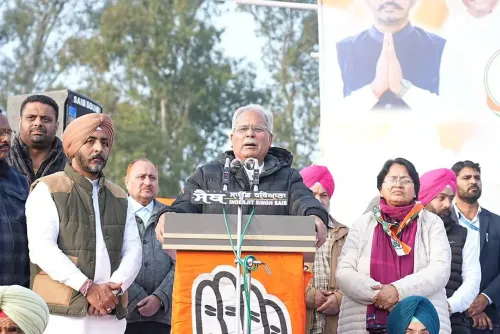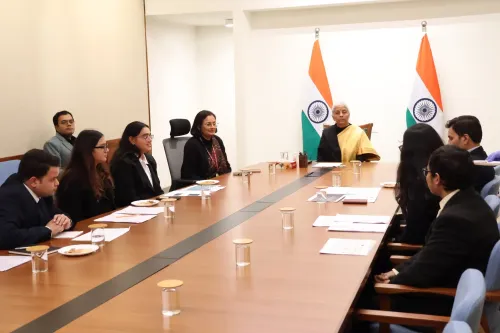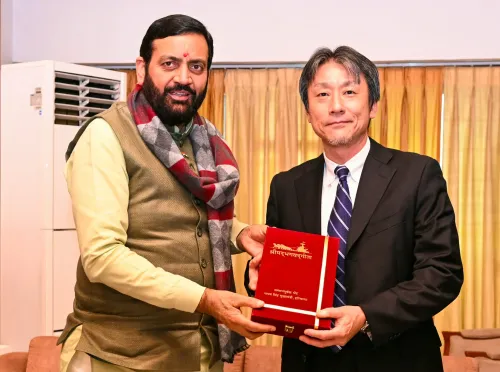Is Madhya Pradesh Moving Towards Total Liquor Prohibition While Promoting Milk Instead?

Synopsis
Key Takeaways
- Liquor prohibition is being implemented in 19 cities.
- Chief Minister Mohan Yadav aims for a significant increase in milk production.
- The initiative seeks to replace liquor shops with milk stores.
- The government anticipates a revenue loss from the liquor ban.
- New categories for alcohol sales are being introduced in restaurants.
Bhopal, May 29 (NationPress) The government of Madhya Pradesh is gradually adopting a model of liquor prohibition inspired by Gujarat, while simultaneously taking significant steps to boost milk sales.
During an event held in Panna to honor Lord Jugal Kishore Lok, Chief Minister Mohan Yadav revealed this transition, stating that the sale of liquor has already been prohibited within the municipal limits of 19 cities, with additional restrictions anticipated.
“Liquor devastates families. Our government is contemplating the closure of all liquor outlets and their replacement with milk stores, as we are actively supporting animal husbandry, especially cow protection, through various initiatives across the state. In Indian culture, an individual who owns a cow is termed Gopal, while someone who cares for its family (known as kul in Hindi) is referred to as Gokul. Our aim is to establish numerous ‘Aadarsh Vrindavan’ villages, each with a population of one lakh,” he stated.
Yadav has set an ambitious target to enhance Madhya Pradesh’s contribution to India’s overall milk production from the current 9% to 20%. Furthermore, there are plans to establish cooperative milk procurement centers covering half of the state’s geography.
Currently, the number of these cooperatives is quite low, at around 7,000. A comprehensive ban on liquor sales within the municipal limits of 19 designated “holy” cities, including the temple town of Ujjain, is slated to take effect starting April 1, 2025.
Importantly, the government has already closed 47 composite alcohol shops under the ban that will apply in 19 locations, including 17 sacred cities, from April 1 of this year.
Composite shops feature separate sections for Indian-made foreign liquor and country liquor. This initiative, announced by Chief Minister Mohan Yadav following the approval of the new excise policy, is projected to lead to an estimated loss of Rs 450 crore in excise revenue for the state government.
Officials indicate that there are approximately 3,600 composite liquor shops in Madhya Pradesh. The newly implemented excise policy mandates the closure of liquor outlets in revered locations such as Ujjain, Omkareshwar, Maheshwar, Mandleshwar, Orchha, Maihar, Chitrakoot, Datia, and several others. This initiative aims to maintain the sanctity of these towns by prohibiting the issuance of new liquor licenses starting from April 1 onward.
Liquor sales, which are vital to Madhya Pradesh's excise revenue, are projected to generate nearly Rs 17,500 crore in the 2025-26 fiscal year, up from Rs 15,500 crore in 2024-25.
In addition to the liquor ban, the latest excise policy introduces a new category termed Low Alcoholic Beverage Bar.
Under this policy, establishments will be permitted to serve only beer, wine, and ready-to-drink beverages with a maximum alcohol content of 10% in restaurants, while the sale and consumption of spirits will be strictly forbidden.










